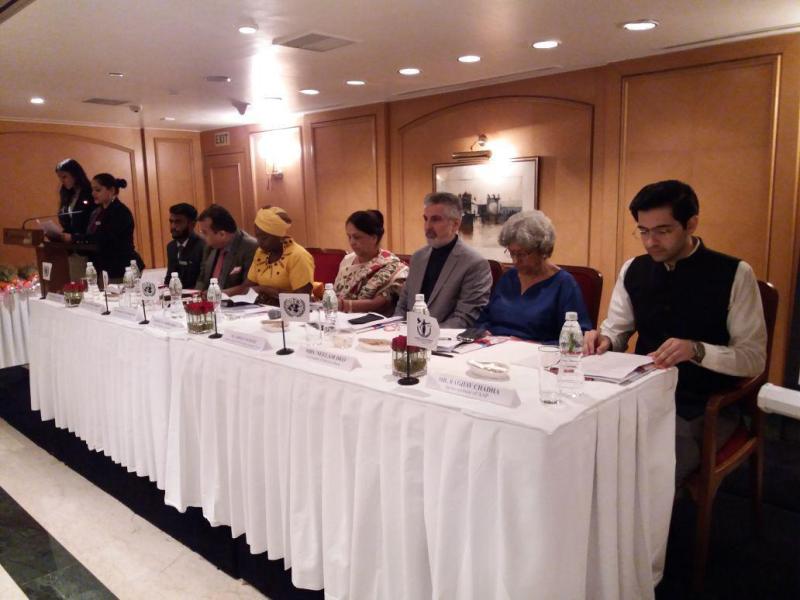
Addressing an international seminar in Mumbai, he said the territorial defeat of the ISIS in Iraq and Syria has heralded the return of some sense of stability to the territory it once occupied.
However, he added, the defeat of the world’s most evil organizations does not mean that the threat of extremism has been removed from the region and beyond.
He said the root causes – particularly its ideology of hate and exclusion – continue and may erupt somewhere else.
The Iranian diplomat further noted the cooperative relationships forged in this fight can usher in a new era.
'We need new approaches and new terminology to make sense of a world which is transiting to a post-western global order. Here are two concepts to shape the emerging paradigm in west Asia: the idea of a strong region, and security networking, whereby small and large countries — even those with historical rivalries — could contribute to stability.'
He said : 'The objective of a strong region — as opposed to a quest for hegemony and the exclusion of other actors — is rooted in recognising the need to respect the interest of all stakeholders.'
Any domineering effort by one country is not only inappropriate, but essentially impossible: those who insist on following that path create instability.
Sadeqi noted that 'the arms race in our region is an instance of this kind of destructive rivalry: siphoning vital resources into the coffers of arms manufacturers contributes nothing to achieving peace and security. Militarism has only served to fuel disastrous adventurism'.
'Most of the usual modes of forming alliances have also become obsolete. Given our interconnected world, the idea of collective security is now defunct, especially in the Persian Gulf, for one basic reason: it assumes commonality of interests,' the Iranian diplomat added.
1424**2050
Follow us on Twitter @IrnaEnglish
 solhkhabar | Peace International News Agency Peace International News Agency , Peace News , International Agency News of Peace
solhkhabar | Peace International News Agency Peace International News Agency , Peace News , International Agency News of Peace